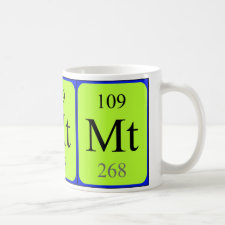
Authors: Tawfik SM, Elmasry MR, Sharipov M, Azizov S, Lee CH, Lee YI
Article Title: Dual emission nonionic molecular imprinting conjugated polythiophenes-based paper devices and their nanofibers for point-of-care biomarkers detection.
Publication date: 2020
Journal: Biosensors and Bioelectronics
Volume: 160
Article Number: 112211.
DOI: 10.1016/j.bios.2020.112211
Alternative URL: https://www.sciencedirect.com/science/article/pii/S0956566320302086
Abstract: Enzyme-based assays have been extensively used for the early diagnosis of disease-related biomarkers. However, these assays are time-consuming, resource-intensive, and infrastructure-dependent, which renders them unsuitable and impractical for use in resource-constrained areas. Thus, there is a strong demand for a biocompatible and potentially generalizable sensor that can rapidly detect cancer biomarkers at ultralow concentration. Herein, an enzyme-free, cost-efficient, and easy-to-use assay based on a novel approach that entails fluorescent molecularly imprinting conjugated polythiophenes (FMICPs) for cancer biomarkers detection is developed. The promising conjugated polythiophenes structure, with a PLQY as high as 55%, provides a straightforward, and affordable method for free-enzyme signal generation. More importantly, the feasibility of integrating printed-paper technology with a sensitive and cost-effective smartphone and portable prototype testing device that could be utilized for rapid point-of-care (POC) cancer diagnostics is successfully introduced. Significantly, the unique structure of FMICP nanofibers (FMICP NFs) displays superior performance with enhanced sensitivity that is 80 times higher than that of pristine FMICP. This assay could lower the limits of detection to 15 fg mL-1 and 3.5 fg mL-1 for α-fetoprotein (AFP) and carcinoembryonic antigen (CEA), respectively, which are three orders of magnitude exceeding that of the standard enzyme-based assay. Moreover, the developed sensors are successfully applied to the fast diagnosis of AFP in liver cancer patients and the FMICP and FMICP NFs results are in excellent agreement with those of clinical ELISA
Template and target information: protein, α-fetoprotein, AFP, carcinoembryonic antigen, CEA
Author keywords: conjugated polymers, Molecular imprinting polythiophenes, Nanofibers, point-of-care, Paper devices, Smartphone



Join the Society for Molecular Imprinting

New items RSS feed
Sign-up for e-mail updates:
Choose between receiving an occasional newsletter or more frequent e-mail alerts.
Click here to go to the sign-up page.
Is your name elemental or peptidic? Enter your name and find out by clicking either of the buttons below!
Other products you may like:
 MIPdatabase
MIPdatabase









